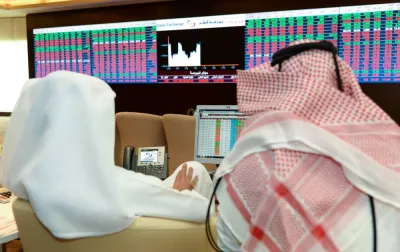The Qatar Stock Exchange (QSE) on Monday crossed the 10,700 mark, having gained more than 69 points, propelled notably by the industrials, banking and telecom sectors. The Gulf institutions were increasingly net buyers as the 20-stock Qatar Index rose 0.65% to 10,710.09 points, although it touched an intraday high of 10,737 points. The Arab individuals were also increasingly bullish in the main market, whose year-to-date gains widened further to 1.31%. About 64% of the traded constituents extended gains to investors in the main bourse, whose capitalisation added QR5.23bn or 0.83% to QR633.26bn on the back of midcap segments. The foreign funds continued to be net buyers but with lesser intensity in the main market, which saw as many as 0.02mn exchange traded funds (sponsored by AlRayan Bank) valued at QR0.05mn trade across six deals. The local retail investors’ net profit booking was seen strengthening marginally in the main bourse, whose trade turnover and volumes were on the increase. The Islamic index was seen gaining slower than the other indices of the main market, which saw no trading of treasury bills. The domestic institutions were seen increasingly net sellers in the main bourse, which saw no trading of sovereign bonds. The Total Return Index gained 0.65%, the All Islamic Index by 0.55% and the All Share Index by 0.7% in the main market. The industrials sector index rose 0.94%, banks and financial services (0.88%), telecom (0.86%), consumer goods and services (0.56%) and real estate (0.05%); while insurance and transport declined 0.47% and 0.27% respectively. Major gainers in the main market included Industries Qatar, Ooredoo, QIIB, Estithmar Holding, Qatar Cinema and Film Distribution, Medicare Group, Qatari Investors Group, Mannai Corporation, Qatar Islamic Bank, Dukhan Bank, Baladna, Al Faleh Educational Holding, QLM and Mazaya Qatar. In the junior bourse, Techno Q saw its shares appreciate in value. Nevertheless, Doha Bank, Milaha, Qatar Insurance, Al Mahhar Holding, AlRayan Bank, United Development Company and Vodafone Qatar were among the shakers in the main market. The Gulf institutions’ net buying increased substantially to QR31.42mn compared to QR5.8mn the previous day. The Arab individual investors’ net buying strengthened noticeably to QR10.13mn against QR3.78mn on May 18. However, the Qatari individuals’ net selling expanded marginally to QR37.71mn compared to QR36.24mn on Sunday. The domestic institutions’ net profit booking grew significantly to QR24.4mn against QR1.93mn the previous day. The foreign institutions’ net buying decreased perceptibly to QR18.57mn compared to QR25.8mn on May 18. The foreign individual investors’ net profit booking eased marginally to QR2.32mn against QR2.5mn on Sunday. The Arab institutions’ net buying weakened markedly to QR0.37mn compared to QR1mn the previous day. The Gulf retail investors’ net profit booking was rather flat at QR0.71mn. The main market witnessed a 36% surge in trade volumes to 292.09mn shares and 75% in value to QR732.05mn on more than doubled deals to 32,431. In the venture market, a total of 94,413 equities valued at QR0.26mn changed hands across 16 transactions.

Santhosh V. Perumal
Santhosh V. Perumal, a postgraduate in Econometrics with an advance qualification in Capital Markets and Financial Services, is Gulf Times' journalist. His coverage areas are debt and equity, hydrocarbons, international trade, environment, banks, insurance and real estate. Previously, he was in New Delhi, India as Senior Finance Correspondent of PTI.
Most Read Stories























